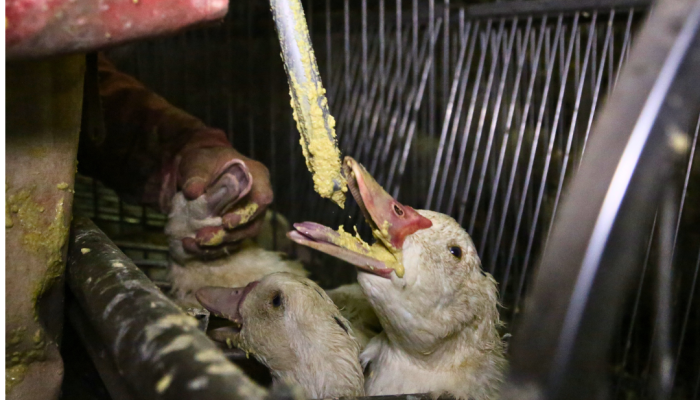Image

While the Brussels Region, Flanders, and the majority of EU countries have already banned the force-feeding of web-footed birds for the production of foie gras, the Walloon government continues to turn a blind eye to this unbelievably cruel practice. Faced with this long-standing political inertia, GAIA has decided to take the Walloon Region to court.
6 December 2023
In light of the Walloon Animal Welfare Code, GAIA and the public have a legitimate right to expect the Walloon Region to take action to protect geese and ducks that are victims of force-feeding. By failing to honour the commitments it set itself in the Walloon Animal Welfare Code, the Region is therefore violating the principle of legitimate expectations. Its inaction is detrimental to the animal welfare. Today, we see we see legal action against the Walloon government as the one and only way of forcing the Walloon Region to revise the legislation governing force-feeding in line with European legislation and scientific knowledge.